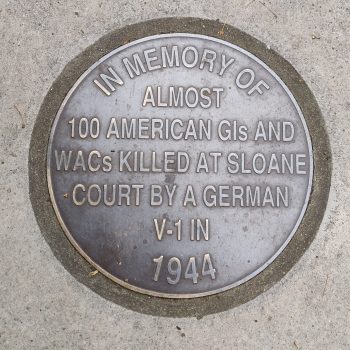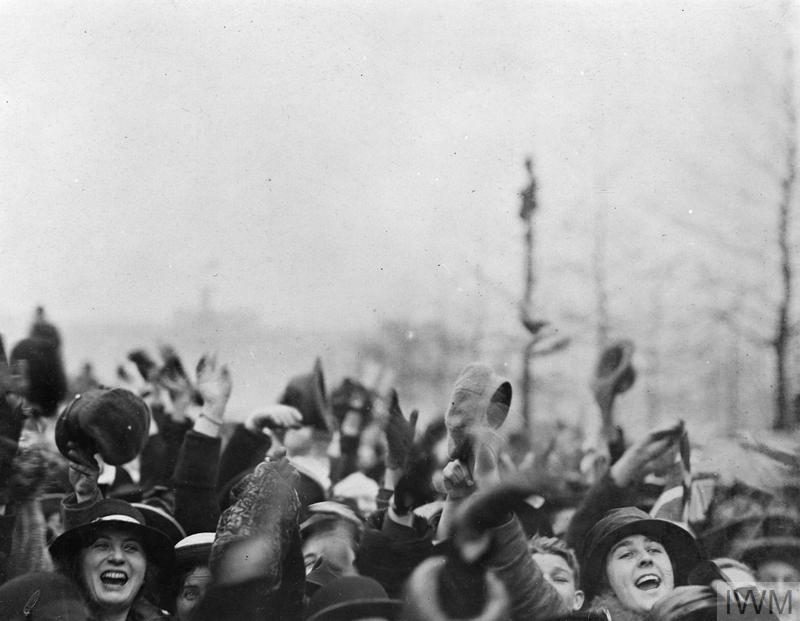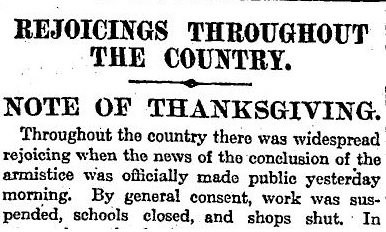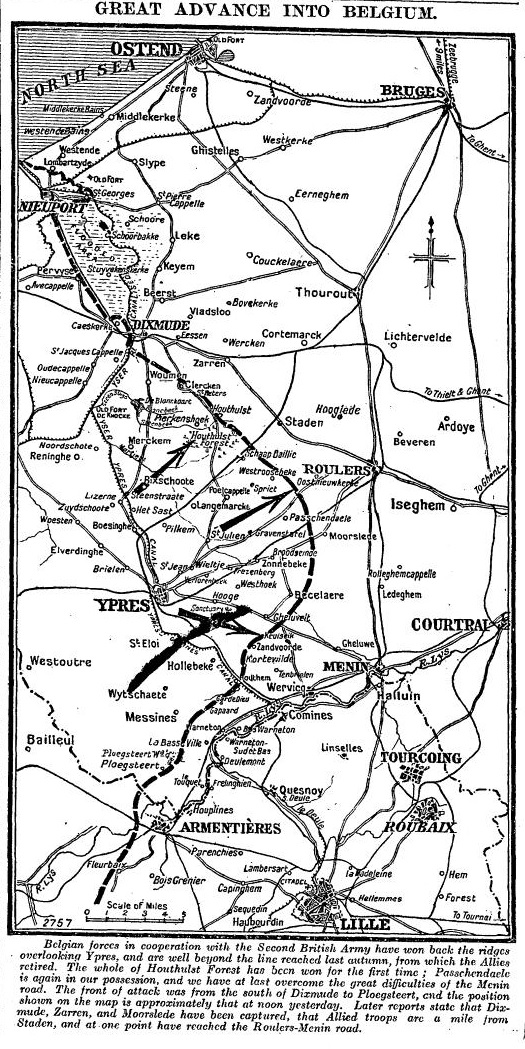We are developing the social individualist meta-context for the future. From the very serious to the extremely frivolous... lets see what is on the mind of the Samizdata people.
Samizdata, derived from Samizdat /n. - a system of clandestine publication of banned literature in the USSR [Russ.,= self-publishing house]
|
It’s now that time of the year between Christmas and the New Year, when we here sometimes do big postings with lots of photos. Usually, these have been retrospective looks back at the year nearly concluded. I did photo-postings like this in 2013, in 2015, and in 2017. And see also other such photo-postings here in the past, like this one in 2014, and this one way back in 2006.
We’re not the only ones doing these retro-postings about the nearly-gone year. A few days back an email incame from David Thompson, flagging up the posting he did summarising his 2019, which will already have been much read on account of Instapundit already having linked to it. And one of Thompson’s commenters mentioned a similar posting by Christopher Snowdon, mostly about politicians wanting to tell us what not to eat, drink or smoke.
So, here’s another 2019 retrospective. But it’s not a look back at the whole of 2019, merely a look back at a walk I took in London, on Christmas Day 2019. I like to photo-walk in London on Christmas Day, especially if the weather is as great as it was that Day.
I began my walk by going to Victoria Street and turning right, towards Westminster Abbey, where I did what I often do around Westminster Abbey. I photoed my fellow digital photographers, who were photoing Westminster Abbey:

The lady on the left as we look is using one of those small but dedicated digital cameras, of the sort that nobody buys now and hardly anyone even uses now, because the logical thing, unless you want something like 25x zoom like I do, or really great photos that you could blow up and hang in an art gallery, is to use a mobile phone. But she is still using her tiny camera from about a decade ago. Odd.
Next some giant purple Christmas tree balls, outside the Queen Elizabeth II Conference Centre.
→ Continue reading: Looking back at Christmas Day
The New York Times is scathing about President Trump’s decision to pull US troops out of Syria and let the Turks invade:
President Trump’s acquiescence to Turkey’s move to send troops deep inside Syrian territory has in only one week’s time turned into a bloody carnage, forced the abandonment of a successful five-year-long American project to keep the peace on a volatile border, and given an unanticipated victory to four American adversaries: Russia, Iran, the Syrian government and the Islamic State.
Rarely has a presidential decision resulted so immediately in what his own party leaders have described as disastrous consequences for American allies and interests. How this decision happened — springing from an “off-script moment” with President Recep Tayyip Erdogan of Turkey, in the words of a senior American diplomat — likely will be debated for years by historians, Middle East experts and conspiracy theorists.
But this much already is clear: Mr. Trump ignored months of warnings from his advisers about what calamities likely would ensue if he followed his instincts to pull back from Syria and abandon America’s longtime allies, the Kurds. He had no Plan B, other than to leave. The only surprise is how swiftly it all collapsed around the president and his depleted, inexperienced foreign policy team.
That sounds very bad to me. I support two entities in the Middle East (and am deeply suspicious of all other entities): Israel, and the Kurds. Has Trump just shafted the Kurds? If the above is right, it would seem so.
I seem vaguely to recall being told that “the Kurds” come in two varieties. There are the Bad Kurds who are Marxist idiots, and who are fighting Turkey (also bad) rather idiotically. And then there are the Good Kurds, further east, who are fighting other religious fundamentalists and who are far more sensible. That could be drivel, either because it was drivel to start with or because I have remembered it all wrong and turned it into drivel. But if not drivel, might something like that have a bearing on what Trump has just done? Or on what he thinks he has done?
My earlier posting re the Kurds was an exercise in libertarian fundamentalism. Now I am asking about the rights and wrongs of an actual foreign policy decision, in an imperfect world, but a world capable of being made horribly worse. It’s one thing to regret a bad situation, caused by previous bad decisions made earlier, by others. It’s quite another to make that situation far worse, with yet another bad decision, to just turn the clock back, come what may, in circumstances where it actually can’t be turned back. “You wouldn’t start from here? Welcome to the world, Mr President. Here is where you now are and you must play the ball where it now lies, rather than from where you say you would have landed it.” Etcetera.
To put all this another way, is Trump as “impulsive” as his critics have long been saying? Until now, he has impressed me a lot. His “impulses” have seemed, on the whole, rather smart. He has, as we often like to say here, at least been making all the right enemies. But as of now, this Syria decision seems dumb. So, is the NYT just doing fake news, again? If not, can what Trump just did be persuasively defended?
Comments please.
About two hundred and forty years ago, the human species began to experience a wealth explosion. Poor people, who had been living and dying on the edge of starvation for millennia, began to get less poor, and slightly richer people started to become even richer, and much more numerous. Every graph measuring human comfort, wealth, progress, length of life, and so on, switched – historically, in the blink of an eye – from being a nearly horizontal line to being a nearly vertical line. This wealth explosion began in North West Europe, and quickly spread to other parts of Europe and to the USA. Now, poor people everywhere are getting less poor in unprecedentedly vast numbers. It’s a different world, and for just about everyone, a hugely better one.
What caused this wealth explosion? And why did it first erupt where it did, in Europe?
For some time now I have been getting to grips with a new book by Stephen Davies entitled The Wealth Explosion: The Nature and Origins of Modernity.

The central and most striking arguments in this book concern how Europe was – and just as significantly, was not – exceptional, as a potential detonator of this wealth explosion.
Clearly there was something exceptional about Europe, or the wealth explosion that we all now enjoy would not have started here. And equally clearly, all the positive ingredients needed for the explosion had to be present here for it to start happening. But the mere presence of all these positive ingredients, says Davies, is not what made Europe exceptional. Until Europe started exploding economically at the end of the eighteenth century, it had been, globally speaking, an economic and cultural backwater. All of these ingredients – demographic, economic, social, institutional, intellectual, spiritual – had been present, in greater strength and for far longer, in other parts of the world, most notably in China. The economic and cultural centre of the world, at least until the late eighteenth century, was not Europe but rather the lands around the Indian Ocean. So, why did the wealth explosion not happen there?
The answer that Davies supplies in The Wealth Explosion is that Europe was exceptional in being the only one of the world’s great civilisations that was not, at the historical moment when it mattered, politically unified. No European “hegemon” emerged in the centuries just before the wealth explosion got started, in the way that single imperial regimes had emerged to dominate Russia, the Middle East and India, and as had long been in successive imperial command in China.
This was the decisive negative ingredient that Europe possessed but which was lacking elsewhere, and this was what made the difference. The wealth explosion got seriously explosive in Europe because, when it started and from then on, nobody in Europe was powerful enough or motivated enough to stop it. On the contrary, the rulers of Europe never stopped competing with one another, and were therefore strongly incentivised to keep their wealth explosion going, despite all the upheaval that it caused. Economic stasis, and cultural stagnation of the sort that would have stopped the wealth explosion, was not, for the various contending rulers of Europe, an option. They needed guns, guns which had to keep on getting better. They needed money, to pay for the guns, and for the ever increasing numbers of people needed to develop, fire and later to carry the guns into battle. They needed the wealth explosion, no matter how much it was empowering new classes of citizen producers and citizen warriors. So, they let it happen. They even encouraged it. At which point the only way not to be beaten by the wealth explosion was to join it. And there we have it: the modern world.
The above is my best shot at summarising what I think is the most important line of argument in The Wealth Explosion. I had intended to write a single, quite long, mostly glowing review of this book. And I tried, I really tried. But the task defeated me (especially the “quite” long bit). Despite its small size for such a subject (only 248 pages) The Wealth Explosion contains so many interesting ideas besides those summarised above, so much pertinent historical detail, and so many judgements based on the voluminous writings and discoveries of other historians, that I found it impossible to say everything that I wanted to say about it in one blog posting, while remaining confident that anyone at all would want to wade through all that I had written. So, I abandoned the attempt to say everything, and instead decided to make a start by merely saying something. I now intend that there will be several more postings here about The Wealth Explosion (in the manner of these recent postings here by Patrick Crozier about Ulster).
That’s the plan anyway. I’ll end this first posting about The Wealth Explosion by saying that, although I don’t now want to elaborate on why I find the central argument of this book, as outlined above, to be so persuasive, I do find it to be very persuasive, and the book in general to be fascinating. And since the historical event in question is arguably the biggest single fact that there is about the world that we now live in, that makes this a very good book indeed. How do you write an excellent work of grand historical theory? You ask important questions and you supply convincing answers. You support these answers with many other interesting and closely related truths, and with reports of relevant debates among and with your fellow historians. This is what I think Stephen Davies has done.
Meanwhile, to learn more about The Wealth Explosion, read the review of it that Ananya Chowdhury did manage to write, for the Adam Smith Institute blog. Or, read what Stephen Davies himself wrote about his book and its conclusions, for CapX. Or, if you like it when people are good at talking to camera as well as good at writing (Stephen Davies is very good at both), listen to what Davies said to the Cato Institute about his book, as recorded in this video.
I was walking down a London street today and came upon a reminder that the reason Donald Trump is visiting the UK is not entirely about current affairs. And whatever you think of him personally, it is worth remembering why he is here.

The UK government led by Theresa May really is quite something, is it not?
Huawei is already embedded in Britain’s elite: in 2015 it appointed to head its UK board Lord Browne, the former chair of BP, who was ennobled by Tony Blair’s administration and served David Cameron too. At the same time, it appointed to its UK board as non-executive dierectors Dame Helen Alexander, formerly leader of the EU-loving Economist Group and Confederation of British Industry (now deceased), and Sir Andrew Cahn, a former civil servant who resigned from Cameron’s Trade and Investment Department in 2011 in order to chair Huawei’s new British advisory board.
May’s government is sacrificing national security, the special relationship, and Brexit in favour of Chinese money and EU integration.
The article is written by some chap called Bruce Newsome, and it makes a good deal of sense. Even if you are sceptical of some of his points about how accountable US intelligence operations are (not very, judging by what has been going on vis a vis Mr Trump) its contention that it makes more sense to trust the US rather than China seems correct to me. This current government is endangering the UK’s long-standing intelligence co-operation under the “Five Eyes” pact with the US, Australia, Canada and New Zealand. And it is being done by a government that failed to deliver on taking the UK out of the EU by 29 March, giving comfort to those who still dream of taking the UK more fully into a developing European state with its own military command structure, at odds, as it will inevitably be, with NATO.
The rollout of a 5-G network in the UK will, hopefully, bring major benefits to users, but you don’t need to watch a lot of scary thrillers to understand the risks in getting a firm involved that is so closely embedded with the Chinese state. (Sure, many Western firms are also embedded in their respective states, so it comes down to a judgement call on which states are less evil, and I think I know the answer to that).
Even those of an anarchist/minarchist turn of mind when it comes to intra-government intelligence sharing processes ought to worry that the UK seems keener to do deals with Chinese state-backed tech firms than protect an alliance that helped to win the Cold War. Such matters should not be discussed behind closed doors of government, but be out in the open.
As far as Theresa May is concerned, my contempt for this individual has gone from gale warning to hurricane-force levels, with no signs of improvement soon.
The British Army continues to morph into the Blairmacht, it seems. Its new recruitment posters had me thinking that I had fallen into a coma and woken up a few days after our glorious independence due on 29th March. Here is what I mean: ‘The Army targets ‘snowflake’ millennials‘ (as recruits, not legitimate uses for ammo).
The posters, taken as fair use:

and this:

Now there are two possibilities I see here, not mutually exclusive, the less likely that someone is trolling the MoD and being paid for it, and the other is that someone is being paid for it.
Still, as posters go, I would grant that it is better than this blatant mickey-take.
And in terms of assuring the civil population that the Army is no threat, it doesn’t really beat this, but I do wonder if the thinking behind the current Army it is more similar to what produced this.
And we should remember that for some British Army recruits, the heat is not the problem, but the cold may be:
A soldier from Africa is suing the Ministry of Defence (MoD) for £150,000, claiming they failed to protect him from cold weather conditions.
“Mr Asiamah told the High Court his superiors had neglected to warn him to bring warm kit such as gloves, socks, and boots ahead of the exercise, which he said took place one week after he was forced to spend five hours listening to lectures in cold weather while dressed in civilian clothing in Naseby, Northamptonshire.”
Naseby, the Civil War, what would Prince Rupert or Halifax say?
But, may I remind you, it is the law of England that the categories of negligence are never closed…
His legal team argues officers exposed Mr Asiamah to the uncomfortable conditions despite knowing Africans are more susceptible to cold-related conditions, according to court papers which quote a 2009 military study which found soldiers of African origin were 30 times more likely to suffer cold-related injuries than indigenous Europeans.
AFAIK, the case continues… What would Field Marshal the Earl (Horatio Herbert) Kitchener say were he spinning in his cold, watery grave? That Wing Cdr Ken Gatward DSO DFC* AE was named for him, and lived up to it, might give one pause for thought.
This coming Sunday, January 6th, I am to give a talk at my friend Christian Michel’s home in London, about the historical impact of the technology of information storage and communication. The somewhat cumbersome title I have supplied to Christian goes like this:
The difficulty and the ease of the making of and the distribution of cultural objects: A history of human civilisation in three layers
Yes, a bit of a mouthful, but it’s a complicated story.
The pre-talk blurb underneath that title, that I also sent to Christian, and some of which Christian has just emailed out to his list of potential attenders, went like this:
I love grand theories of history, and here’s another: history in terms of the storage and communication of what is dryly known as “information”. In more vivid English, in terms of all the cultural meanings we have created for ourselves and for each other (and also at each other, so to speak) over the centuries since humans first contrived to craft meaningful messages beyond what they merely said to one another.
There are three “layers” to the story I’ll be telling, divided into three by two history dates.
Layer One: Creating “cultural objects” is difficult and so is transmitting or communicating them.
Layer Two: Creating “cultural objects” suddenly becomes much easier, for those who command the means to do it, but transmitting them or communicating them remains difficult.
Layer Three: Both creating and communicating messages becomes easy.
Layer Two starts settling on top of Layer One with the printing of the Gutenberg Bible in the early 1450s. Layer Three starts to settle on top of Layers One and Two with the invention of the electric telegraph in the 1840s. (Morse code etc.)
Layers rather than “eras”, because the cultural habits and political institutions established during Layers One and Two – the civilisational divisions of Layer One and the nationalist passions (to say nothing of printing itself) characteristic of Layer Two – never went away and are still very much with us today.
Of course there’s much more to my story than that crude summary. I will elaborate on the above simplicities as much as time permits.
I’d be interested in what the Samizdata commentariat has to say about all or any of this.
For now, I will merely elaborate a little, as I will on the night, on the matter of those “civilisational divisions and nationalist passions”.
→ Continue reading: On human culture – and on how it got printed and then electrified
I was always taught that the Maginot Line was a military white elephant – colossally expensive and easily by-passed. But this guy begs to differ – kinda sorta. Short version: it would have worked if it hadn’t been for those flibbertygibbet Belgians! Even so he doesn’t address the question of how Germany would have been brought to heel by means of an entirely defensive strategy.
I love this sort of challenge to the narrative and I understand that Samizdata’s own Bertrand Maginot will be joining me. For once.
 THE ARMISTICE DAY, NOVEMBER 1918 (Q 80135) Crowd cheering outside Buckingham Palace during the Armistice Day, 11 November 1918. Copyright: © IWM. Original Source: http://www.iwm.org.uk/collections/item/object/205324739  The Times 12 November 1918 p10. Right click for full page.
Of course, officially speaking there was never a First Battle of Passchendaele but most of us are aware that in 1917 in the space of 3 months at the cost of 80,000 dead the British advanced from just outside Ypres to Passchendaele Ridge.
In September 1918, they – along with the Belgians(!) – did it in a day.
A day. A couple of months ago I wrote about the Battle of Amiens. I still find it astonishing. And I find this astonishing too. Because it is so difficult to explain. The British army had been battered in the Ludendorff Offensive. It had been clinging on. It had lost huge numbers of men. The sense of panic went right up to the top. And yet, when it went on the offensive itself it found it was seemingly pushing at an open door. Second Passchendaele – as I choose to call it – wasn’t even the biggest victory that week. Sure, the British Army had got a lot better at attacking. There is a clear line of progression from 1916 to 1917 and one must assume that that continued in 1918. But there is nothing to suggest this amazing series of victories.
I imagine that German morale must have suffered a catastrophic collapse. But even that doesn’t make sense. More Britons died in the Hundred Days Offensive than at First Passchendaele. The Germans might have been down but they weren’t out. At least not yet.
 The Times 30 September 1918. Right click for the full page.
Hurricane opened recently, I went to see it with the Sage of Kettering. The film tells the story of the Polish 303 Squadron in the Battle of Britain. The film starts with Polish pilots working their way to England in the chaos of falling France. One pilot, with some Swiss ancestry, pretends to be a Swiss Swiss watch salesman, another steals a biplane from a French airforce aerodrome, a fine Czech pilot is also in the Squadron. They end up at RAF Northolt, sharing the base with a plotting station and hence a large number of WAAF personnel, with predictable consequences.
The Poles appear to be a ramshackle lot, lacking the discipline and bearing that the RAF expects. A Canadian officer is given the apparently thankless task of knocking them into what the RAF would recognise as ‘shape’, the pilots (many very experienced and some aces) are frustrated as they are kept back from action whilst they learn English and how to manage their fine steeds. There is some humour as a truculent Warrant Officer is brilliantly mis-translated by one of the pilots as he barks to his colleagues.
It should be said that whilst the Hurricane, Sir Sydney Camm’s wonderful, chubby little puncher is the nominal star of the film, with it featuring in all the fighting and airfield scenes, it hardly gets any mentions, except a passing comment that a pilot thinks it is wonderful. They start off with training flights and escorting Blenheim bombers (There is still one flying in the UK, for what those guys went through, here is a 1989 documentary). Some of the Polish pilots are sent off to bombers, despite their experience. From what I have read, at the time, RAF training didn’t include simulating combat or even gun firing for some pilots. The Poles harmonise their guns at around 150 yards, because they like to get close before firing.
After a bit of indisciplined flying (breaking mission orders by going to attack German aircraft), the squadron is declared operational and success starts to come, one pilot has the foresight to make a rudimentary chapel in an old hut. News of their success spreads, Air Chief Marshal Dowding and Sir Keith Park discuss the squadron and are pleased with it (there are no politicians in this film). They are not introduced, and the actor playing Dowding looks a bit more like Park than he does Dowding imho, but you eventually find out who they are).
The Poles have a constant awareness of the horrors being visited on their homeland, going to the Polish government-in-exile offices for invariably bad news of relatives executed, which the film shows in grim ‘flashback’, one shot by firing squad, another NKVD-style, another hanged. The contrast with the attitude of the British, who seem to regard the war almost as an unpleasantness is brought out with a trip to the Dorchester where Society ladies treat the pilots to a reception in their honour, which turns out to be an awkward occasion. A press visit to the Squadron ends with one reporter getting punched for ghoulishness. The generally good publicity leads Dowding to hope out loud that it might induce friendly volunteer pilots from overseas to turn up and help. Relations with the Poles and British crews aren’t good at the start, but they improve. May I digress? There is a little bit of a sub-plot with a passing incident of ‘domestic violence’ towards a WAAF, which may explain why there was an advert in the trailers for Women’s Aid, which to me gave the misleading impression that only men commit domestic violence, the man in the trailer hits the woman, but he vapes rather than smokes, you can’t show really bad things you know. In the film, everyone seems to smoke, well, not when refuelling.
The film suffers a bit in the depiction of aerial combat, the CGI has an old video game feel to it at times, and we appear to be seeing the same scenes over and over again. As the film goes on, they start to take casualties, some get horribly burned, some crack up and can’t get themselves to kill Germans. The film does not pretty-fy the war, it does get across the burning hatred that the pilots had for those who had destroyed their homeland. At one point, a British officer says that they will be back in Warsaw soon, and the Sage and I muttered ‘1989’ and ‘1990’.
The film skips forward to the end of the War once the Battle of Britain concludes, the characters not apparently any older 5 years on, and the Poles are excluded from Victory Parade, and they are fully aware of what Stalin is doing to Poland, and they are told that they are to be booted out and sent home, one of the Attlee government’s choicer crimes, but it turned out that many were allowed to stay or emigrate to a third country. Some of the pilots are seen in Civvy Street, one a newspaper vendor (apparently people used to buy newspapers). It cites an opinion poll stating that 56% of the British population wanted the Poles to be sent back to Stalin’s new Poland.
The film is a great tribute to those fine men and their ground crews and it’s well worth seeing if you get the chance. It’s better than Dunkirk, with its wet Bank Holiday at the seaside feel, if not as tense as Darkest Hour.
And we saw the film in Corby, after a fine carvery in Rockingham. Corby is perhaps a strong contender for the most soulless town in Britain, a riot of 1960s and newer architecture, complete with its own ‘mass hero’, the Steelworker. We go there, so you don’t have to. It does however, name a square for James Ashworth VC.


|
Who Are We? The Samizdata people are a bunch of sinister and heavily armed globalist illuminati who seek to infect the entire world with the values of personal liberty and several property. Amongst our many crimes is a sense of humour and the intermittent use of British spelling.
We are also a varied group made up of social individualists, classical liberals, whigs, libertarians, extropians, futurists, ‘Porcupines’, Karl Popper fetishists, recovering neo-conservatives, crazed Ayn Rand worshipers, over-caffeinated Virginia Postrel devotees, witty Frédéric Bastiat wannabes, cypherpunks, minarchists, kritarchists and wild-eyed anarcho-capitalists from Britain, North America, Australia and Europe.
|













